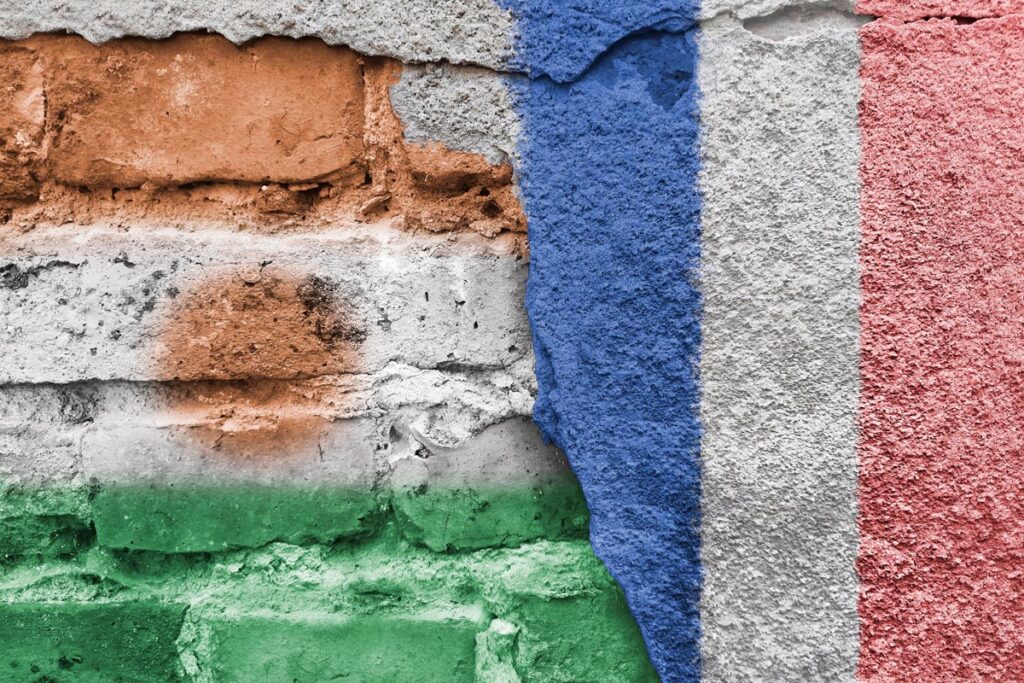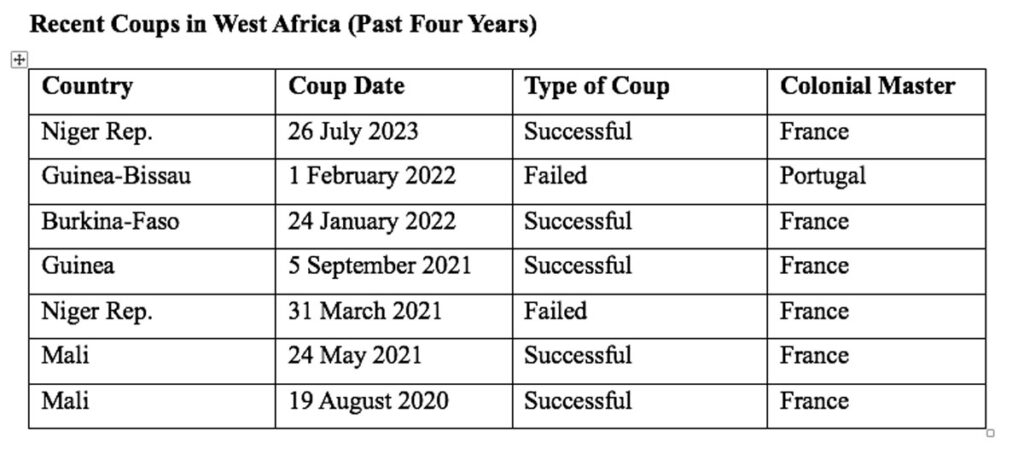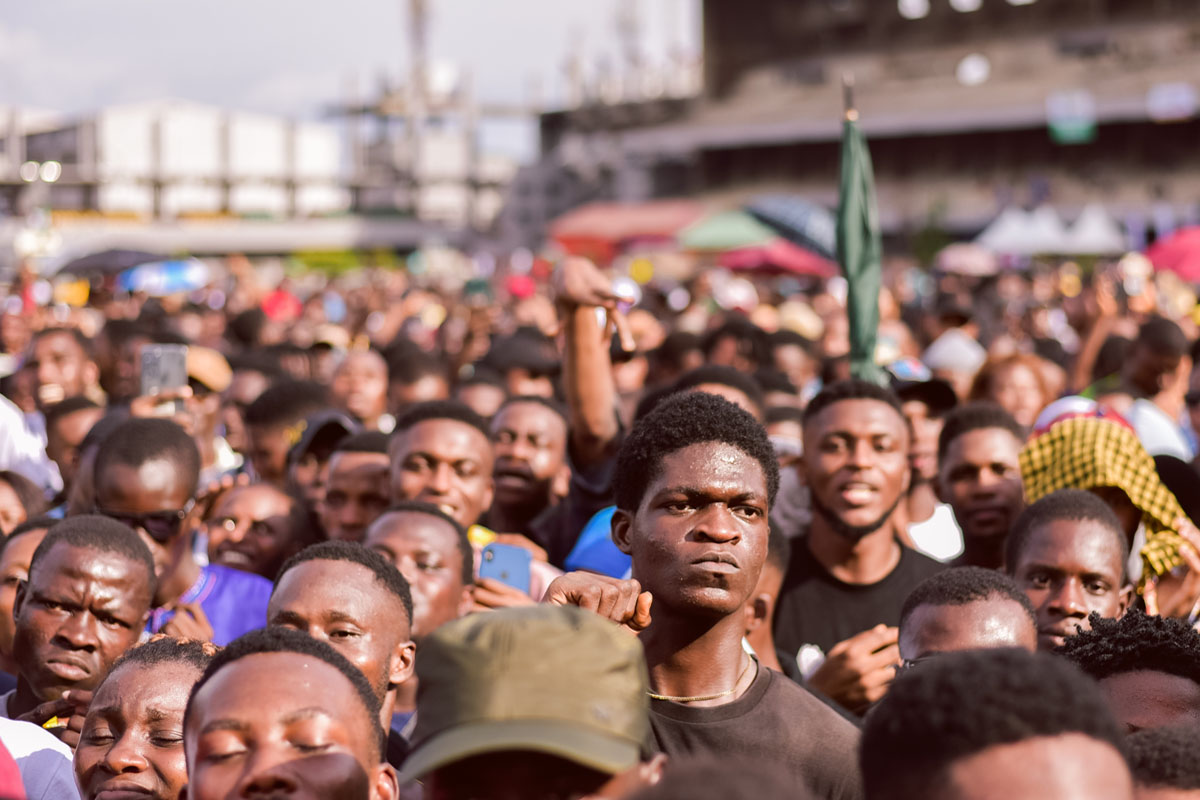West Africa’s Declining Democracy
August 16by Chimaobi Omeye
The Niger Republic coup d’état of 26th July came as a shock and an opportunity to reflect on the state of democracy in the West African region.
Within a few years, Niger joined Burkina-Faso, Guinea, and Mali in ousting democratically elected sitting governments. Many believe this is a time to challenge the status quo and seek an improved level of governance from the leaders of the most terrorized region in the world.
Recently, the region has seen a high level of alleged electoral malpractice in Nigeria, Sierra Leone, etc. in their just-concluded elections.
A region with a very high level of poverty, terrorism, corruption, under-development, and most especially high exploitation from foreign partners has raised some level of questions on the kind of leadership that will lead and bring a lasting change.

Many West Africans, as can be seen from the Nigeriens are ready to support a military takeover or any form of governance apart from democracy as long as the change will bring about rapid and lasting change. Democracy has failed to provide free and fair elections, curb corruption, improve the economy and reduce terrorism, etc., and it seems the winds of change are now about to blow in the region.
The success of the military takeover in Burkina-Faso, Guinea, and Mali set the precedence for the Nigerien Junta to strike and this proved a declining state of democracy in the region.
It is very important to understand the root causes of this series of coup d’état in West Africa. The region together with the Sahel (Chad) has recorded the highest number of coups in Africa contributing to about 45 per cent. In the past 15 years, there have been 20 coups in the region with seven happening over the past five years (both successful and unsuccessful coups). Something striking to note is that most of the coups occurred within Francophone countries.

The fact that most of the coups happened in Francophone countries suggests that maybe France’s principle of assimilation was a disaster. Granting political independence to the countries but still holding back on their resources and keeping military forces, which does not translate to real development and economic prosperity, raises questions as to whether these countries are actually independent.
Notwithstanding, it is also very clear that West African coups are not only motivated inwardly but have some external influences as well. The growing influence of the Russian Wagner group in the region especially within Burkina-Faso, Guinea, and Mali is a clear example of foreign influence and Russia’s agenda in dominating the Western powers. But also, it is being reported that the Malian Junta leader even received training and assistance from the US, and we cannot forget how France previously supported Blaise Campaore and Mahamat Derby coups.
It is striking to see how Burkinabes, Malians, and Nigeriens attacked and burnt Western flags especially that of France, and embraced that of the Russian Federation. Always, these are statements of rejection and acceptance which should be a cause to worry. I am of the opinion that West Africans should resolve their issues locally and avoid foreign interference because, in the end, it is all about the interest that matters. The interest of the owners of the resources should be first and paramount.
The cocoa in Cote d’Ivoire, Ghana, Nigeria, etc. should attract the chocolate factories and industries in the region, but unfortunately, Africa gets less than 10 per cent revenue of the chocolate business worldwide. The vast Uranium deposits in Niger Rep. should attract nuclear factories within Niamey and power the country and grow the medium and small enterprises, rather we have seen Paris and other western cities being powered with the uranium from the Niger Rep. This is also applicable to the uncountable number of solid and liquid minerals.
West African leadership needs to get better, starting from the country-to-country level. We have seen a troubled Nigeria with her violent and allegedly rigged election that produced the current chair of the Economic Community of West African States (ECOWAS). This is in addition to massive levels of corruption and insecurity. We can’t forget how democratically elected leaders often push for constitutional change to increase their length of stay in office as witnessed in Cote d’Ivoire, Senegal, the Gambia etc.
ECOWAS has always appeared weak and biased in handling crises in the region. Their one-week ultimatum to the Niger Rep. Juntas that expired recently shows the weakness clearly and I believe pushing for a military intervention was a great mistake that does not go in the interest of West Africa but maybe on the side of external parties. Considering diplomacy and the choice of the people must be the first and last means of resolving this crisis. The region can never afford a regional war which should be avoided by every means possible.
Terrorism, corruption, poverty, electoral fraud, etc. must reduce drastically for the region to experience a high level of peace. ECOWAS must discourage ‘institutional coups’ first before a military coup. The masses should be able to see the benefits of democracy otherwise the support for military coups will keep rising in the region and the wind of change could take over, especially in favour of the Eastern powers of Russia and China.






